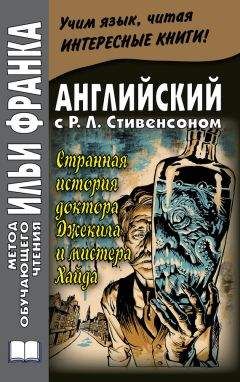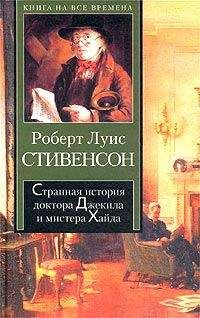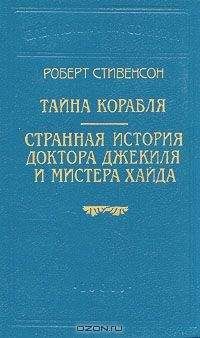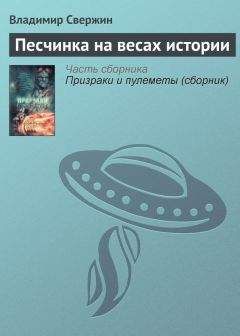Robert Stevenson - Английский язык с Р. Л. Стивенсоном. Странная история доктора Джекила и мистера Хайда
double-dealer ["dAbl'di:lq] hypocrite ['hIpqkrIt] furtherance ['fq:D(q)rqns] perennial [pq'renIql]
Though so profound a double-dealer, I was in no sense a hypocrite; both sides of me were in dead earnest; I was no more myself when I laid aside restraint and plunged in shame, than when I laboured in the eye of day, at the furtherance of knowledge or the relief of sorrow and suffering. And it chanced that the direction of my scientific studies, which led wholly towards the mystic and transcendental, reacted and shed a strong light on this consciousness of the perennial war among my members.
With every day, and from both sides of my intelligence, the moral and the intellectual (с каждым днем и с обеих сторон моей духовной сущности — нравственной и интеллектуальной), I thus drew steadily nearer to that truth (я, таким образом, все больше приближался к той истине) by whose partial discovery I have been doomed to such a dreadful shipwreck (при частичном открытии которой я был обречен на столь ужасное поражение; shipwreck — кораблекрушение; крушение/надеждит. п./): that man is not truly one, but truly two (/а именно/ что человек на самом деле не един, а двойственен). I say two, because the state of my own knowledge (я говорю двойственен, потому что мои собственные познания) does not pass beyond that point (не переходят за эту грань; point — точка; место, пункт). Others will follow (за мной последуют другие); others will outstrip me on the same lines (они превзойдут меня, /двигаясь/ в том же направлении; line — линия; курс, путь); and I hazard the guess that man will be ultimately known (и я рискну предположить: «предположение», что человек, в конечном итоге, будет известен как = окажется) for a mere policy of multifarious, incongruous and independent denizens (всего лишь комбинацией разнообразных, несовместимых = несхожих и независимых /друг от друга/ жителей = сочленов; policy — политика; система; число, комбинациячисел/вазартнойигре/; denizen — жительстраны/вотличиеотиностранца/; multifarious — различный, разнообразный, разный).
intelligence [In'telIdZ(q)ns] hazard ['hxzqd] ultimately ['AltImItlI] multifarious ["mAltI'fe(q)rIqs] incongruous [In'kONgruqs] denizen ['denIz(q)n]
With every day, and from both sides of my intelligence, the moral and the intellectual, I thus drew steadily nearer to that truth by whose partial discovery I have been doomed to such a dreadful shipwreck: that man is not truly one, but truly two. I say two, because the state of my own knowledge does not pass beyond that point. Others will follow; others will outstrip me on the same lines; and I hazard the guess that man will be ultimately known for a mere policy of multifarious, incongruous and independent denizens.
It was on the moral side, and in my own person (именно в сфере нравственности и на собственной своей личности/и лично; in person — лично), that I learned to recognise the thorough and primitive duality of man (я научился распознавать = обнаружил абсолютную и изначальную двойственность человека; thorough — исчерпывающий, полный, основательный, всесторонний, доскональный; тщательный; совершенный, абсолютный); I saw that, of the two natures that contended in the field of my consciousness (я понял, что из тех двух естеств, что сражались на поле моего сознания/разума), even if I could rightly be said to be either (даже если по праву можно было сказать, что я являюсь тем или другим; either — любой/издвух/; одиниздвух; тотилидругой; итотидругой; оба; каждый), it was only because I was radically both (так только потому, что я в своей основе был и тем, и другим: «обоими»; radically — всвоейоснове, вкорне, попроисхождению); and from an early date (и с самого раннего времени), even before the course of my scientific discoveries had begun to suggest (даже до того, как ход моих научных открытий = изысканий позволил предположить) the most naked possibility of such a miracle (совершенно явную возможность подобного чуда; naked — голый; явный, открытый), I had learned to dwell with pleasure, as a beloved day-dream (я привык: «научился» предаваться с наслаждением, словно любимой = заветной мечте; to dwell — обитать, жить; задерживаться/начем-либо/, рассуждать/очем-либо/), on the thought of the separation of these elements (мысли о разделении двух этих элементов).
primitive ['prImItIv] duality [dju(:)'xlItI] radically ['rxdIk(q)lI] miracle ['mIrqk(q)l] pleasure ['pleZq] separation ["sepq'reIS(q)n]
It was on the moral side, and in my own person, that I learned to recognise the thorough and primitive duality of man; I saw that, of the two natures that contended in the field of my consciousness, even if I could rightly be said to be either, it was only because I was radically both; and from an early date, even before the course of my scientific discoveries had begun to suggest the most naked possibility of such a miracle, I had learned to dwell with pleasure, as a beloved day-dream, on the thought of the separation of these elements.
If each, I told myself, could but be housed in separate identities (если каждый, говорил я себе, мог бы быть помещен в отдельную личность = если их можно было бы расселить в отдельные тела; to house — предоставлятьжилище; identity — тождественность; личность), life would be relieved of all that was unbearable (то можно было бы освободить жизнь от всего, что делало ее невыносимой; to relieve — облегчать; освобождать/отчего-либо/); the unjust might go his way (неправедный мог бы отправиться своим путем), delivered from the aspirations and remorse of his more upright twin (избавленный от стремлений и угрызений совести его более добродетельного двойника: «близнеца»; to deliver — передавать, вручать; освобождать, избавлять; upright — вертикальный; честный, справедливый); and the just could walk steadfastly and securely on his upward path (а справедливый мог бы непоколебимо и спокойно идти по своему благому пути = спокойно и неуклонно идти своей благой стезей; upward — движущийсявверх, восходящий), doing the good things in which he found his pleasure (творя добрые дела, в которых он находил бы свое удовольствие = творя добро согласно своим наклонностям), and no longer exposed to disgrace and penitence by the hands of this extraneous evil (и не был бы более подвержен бесчестию и раскаянию от рук = состороныэтого, чуждого ему, зла). It was the curse of mankind that these incongruous faggots were bound together (настоящим проклятием для человечества было то, что эти две несовместимых вязанки = части оказались связаны друг с другом) — that in the agonised womb of consciousness (что в истерзанной утробе души; womb — матка; agonised — мучительный; to agonise — переживать; мучиться; страдать /морально и физически/), these polar twins should be continuously struggling (эти диаметрально противоположные = враждующие близнецы должны были непрерывно сражаться). How, then, were they dissociated (но как же их тогда разъединить: «были бы они разъединены»)?
separate ['sep(q)rIt] identity [aI'dentItI] unbearable [An'be(q)rqb(q)l] extraneous [Ik'streInIqs] curse [kq:s] faggot ['fxgqt] womb [wu:m]
If each, I told myself, could but be housed in separate identities, life would be relieved of all that was unbearable; the unjust might go his way, delivered from the aspirations and remorse of his more upright twin; and the just could walk steadfastly and securely on his upward path, doing the good things in which he found his pleasure, and no longer exposed to disgrace and penitence by the hands of this extraneous evil. It was the curse of mankind that these incongruous faggots were bound together — that in the agonised womb of consciousness, these polar twins should be continuously struggling. How, then, were they dissociated?
I was so far in my reflections (вот куда привели меня мои размышления: «я был настолько далек в моих размышлениях»), when, as I have said (когда, как я упоминал), a side light began to shine upon the subject from the laboratory table (свет начал брезжить на этот вопрос с лабораторного стола). I began to perceive more deeply than it has ever yet been stated (я начал осознавать глубже, чем кто-либо обосновывал это прежде; to state — заявлять, утверждать; констатировать; устанавливать, точно определять; формулировать; излагать /особ. логический ход мысли на бумаге/), the trembling immateriality (всю зыбкую нематериальность; to tremble — дрожать), the mistlike transcience (всю облачную бесплотность: «проникаемость»), of this seemingly so solid body in which we walk attired (этого столь твердого = стольнеизменногона вид тела, в которое мы облечены; to walk — ходить; вестисебя, жить; to attire — облачать, наряжать, одевать /в роскошные, торжественные одеяния/). Certain agents I found to have the power (я обнаружил, что некоторые реагенты обладают способностью; power — сила, мощь; способность) to shake and to pluck back that fleshy vestment (сотрясать и срывать то плотское одеяние), even as a wind might toss the curtains of a pavilion (точно так же, как ветер мог бы колебать занавески в беседке; to toss — бросать; раскачивать, заставлятьколыхаться).For two good reasons (по двум веским причинам; good — хороший; основательный), I will not enter deeply into this scientific branch of my confession (я не буду глубоко вдаваться в эту научную часть своего признания; branch — ветка/дерева/; ответвление).




